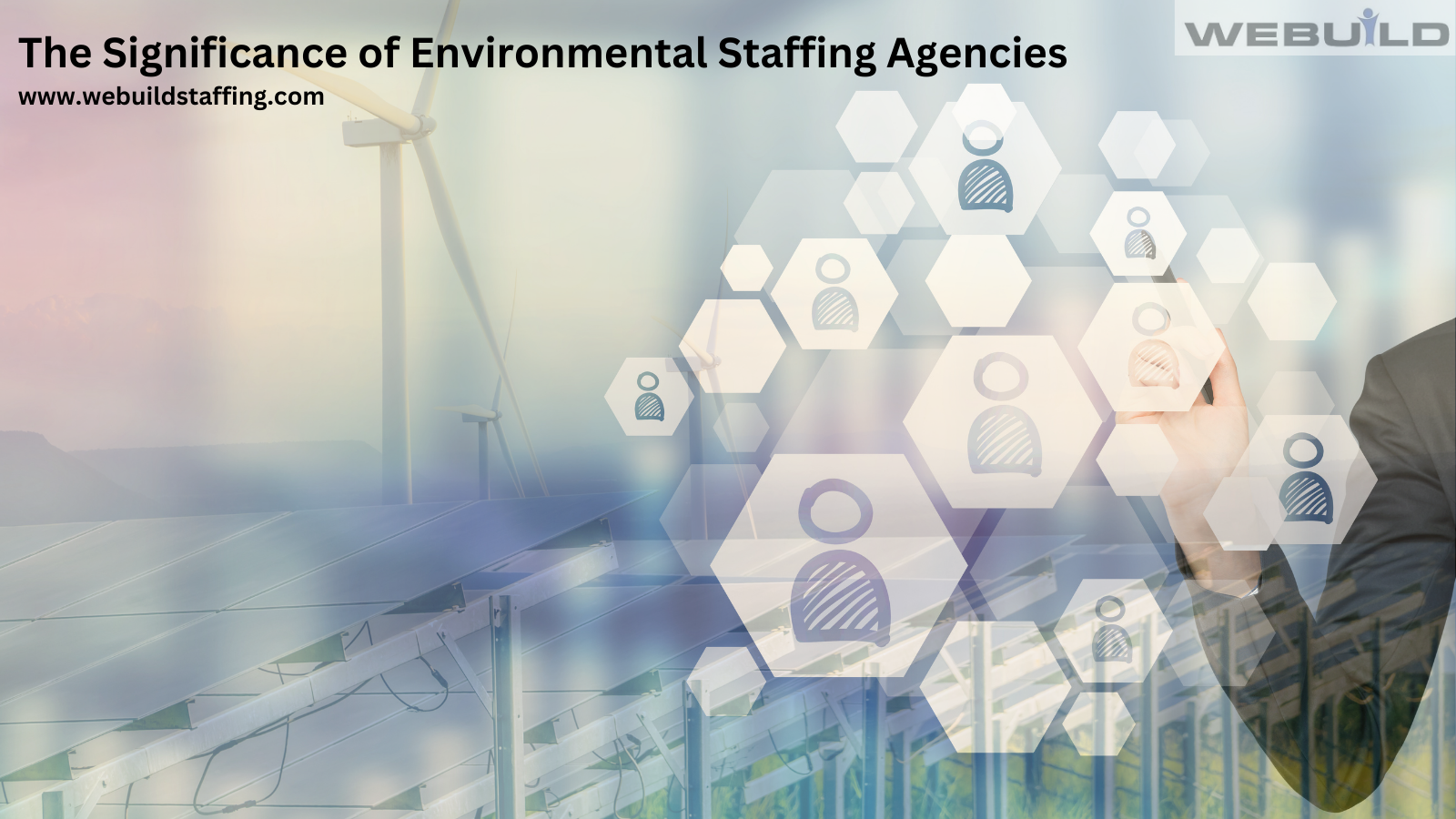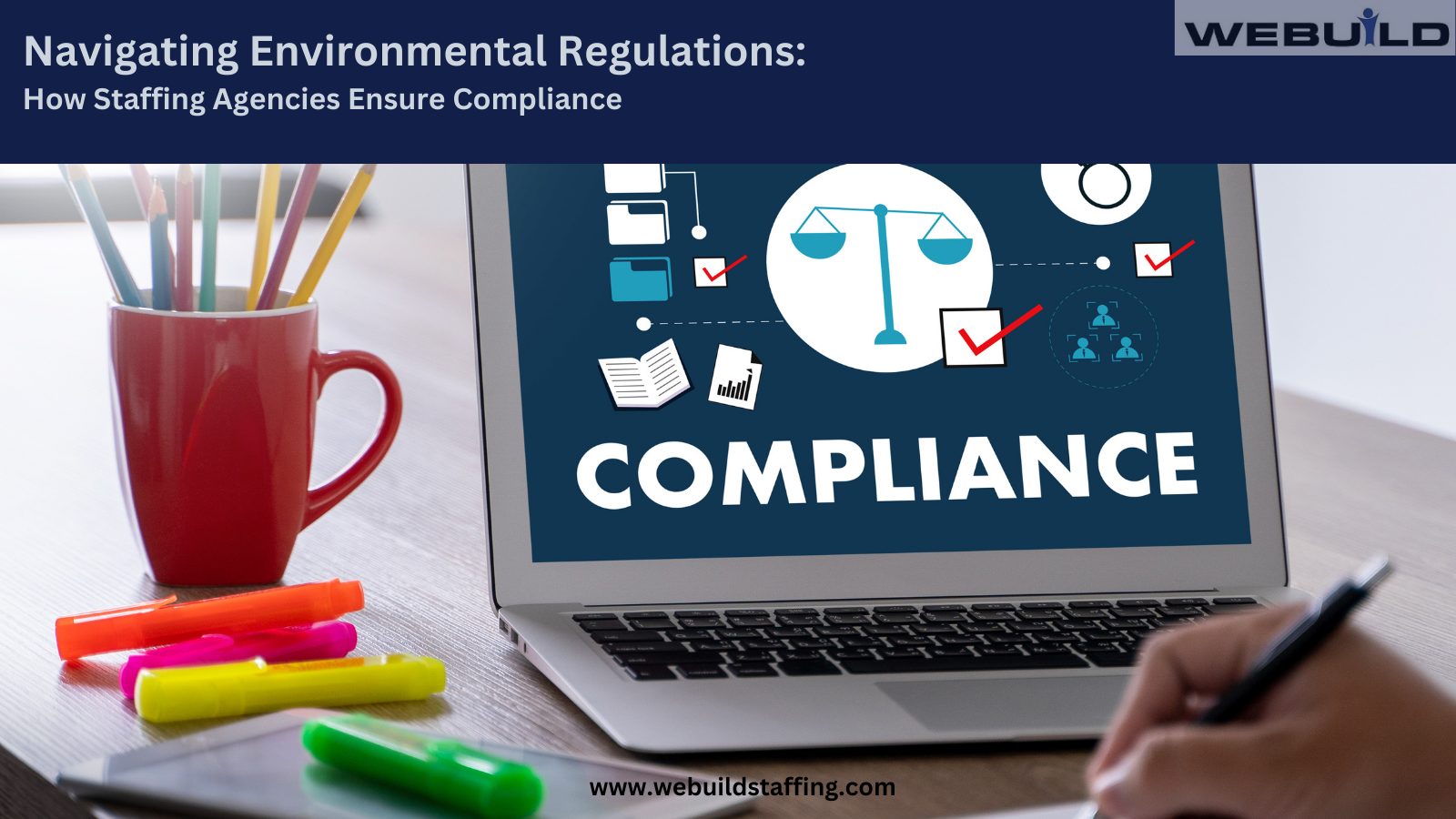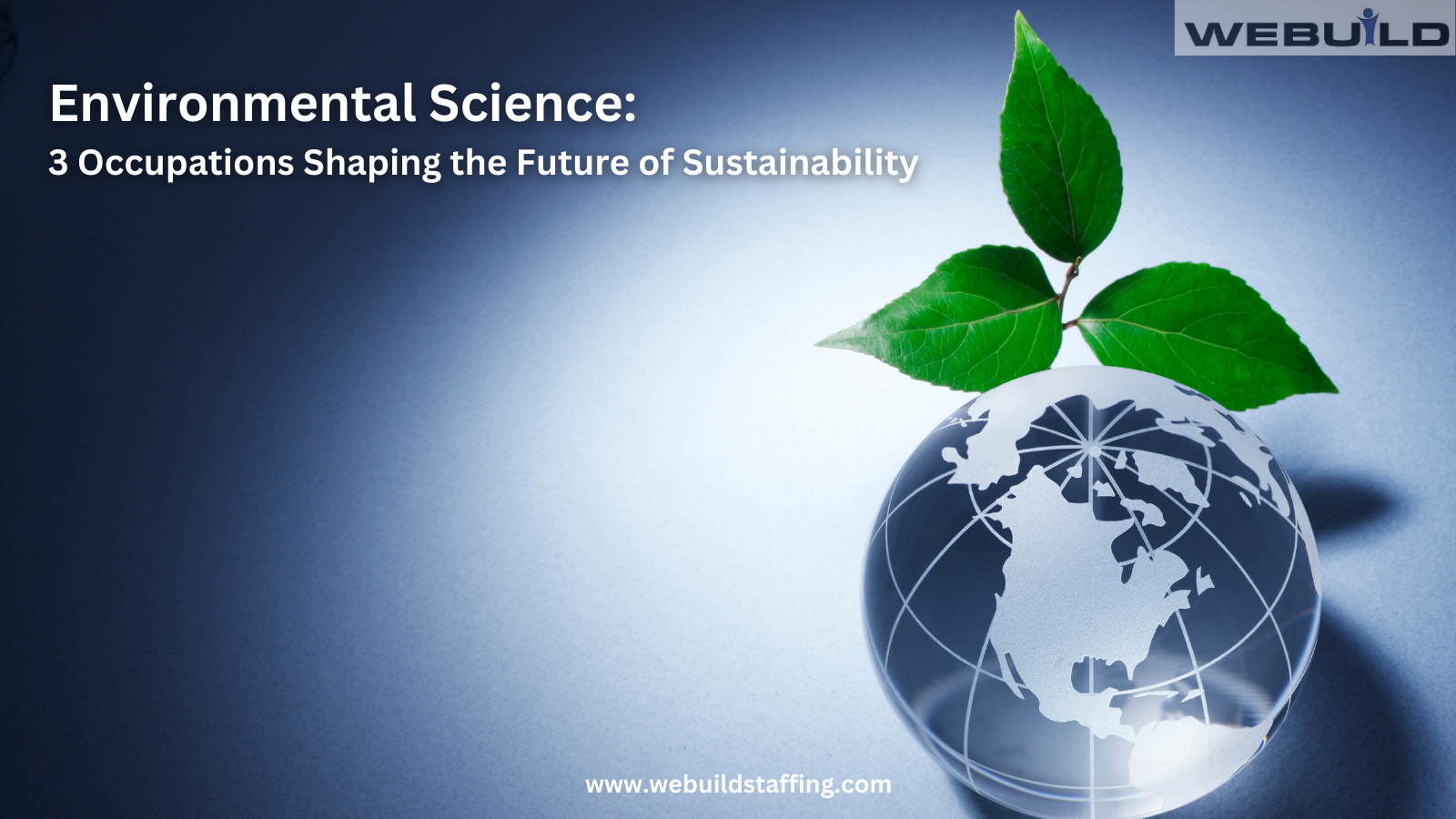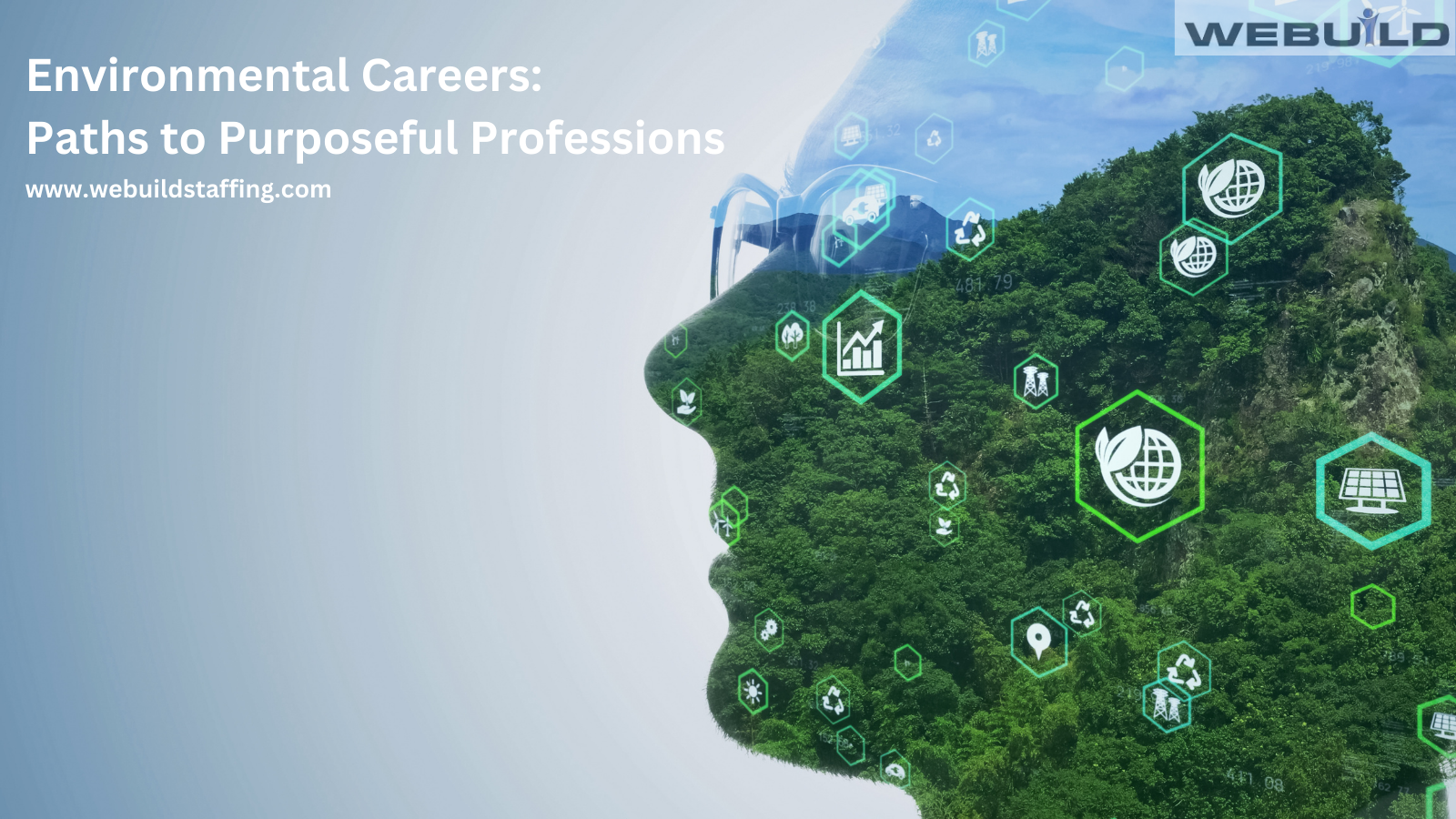The Rise of Remote Environmental Jobs: How to Land a Virtual Green Job
WEBUILD STAFFING BLOG |
The Rise of Remote Environmental Jobs: How to Land a Virtual Green Job
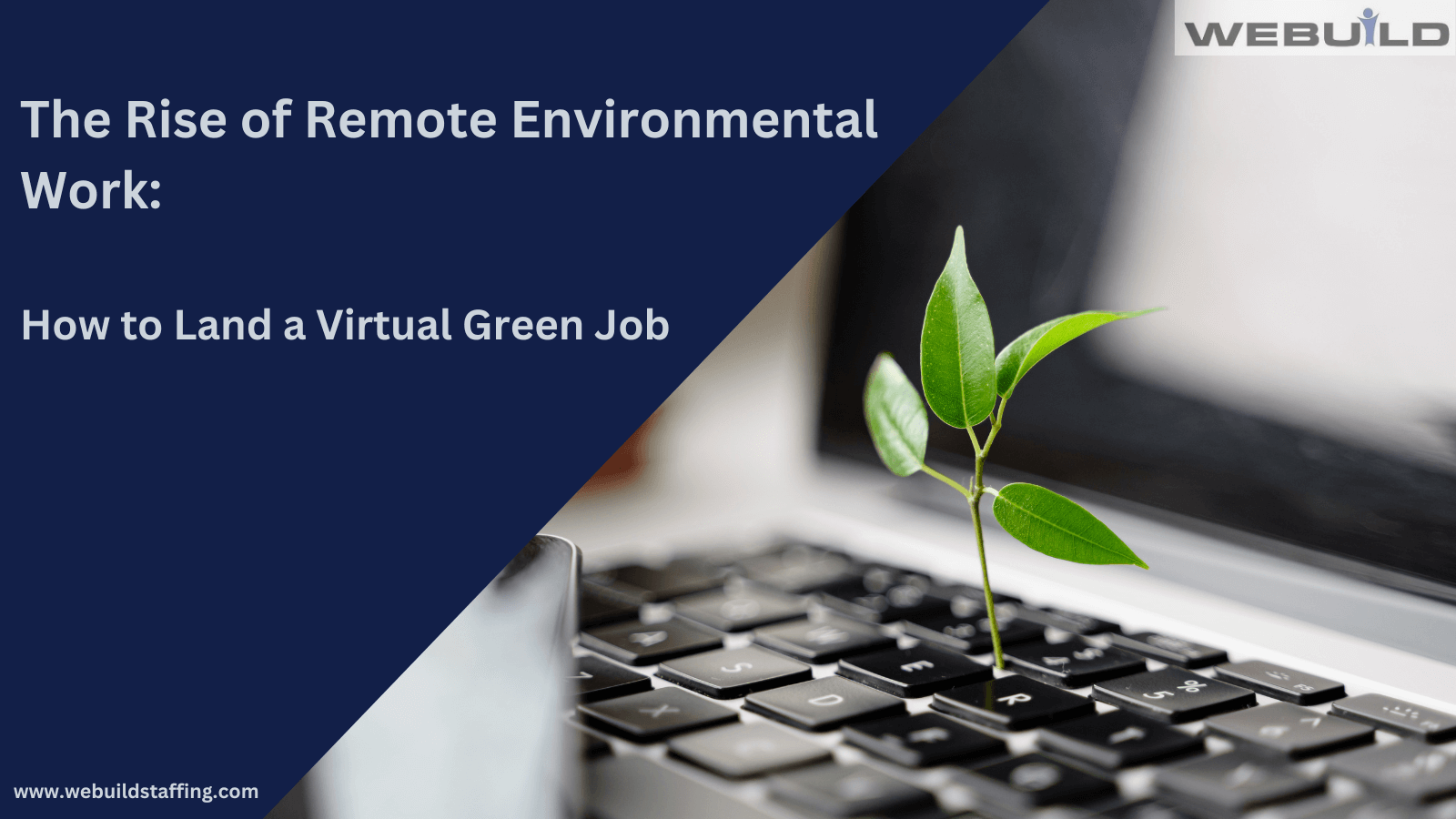
In recent years, remote work has undergone a dramatic transformation, and the environmental sector is no exception to this trend. The rise of remote environmental jobs has opened up exciting opportunities for professionals passionate about sustainability, conservation, and eco-friendly practices. Today we will explore the increasing popularity of virtual green gigs and provides insights on how to secure a remote environmental job. Whether you’re an experienced environmental professional or a newcomer to the field, this guide will help you navigate the evolving landscape of remote work in the environmental sector.
The Growth of Remote Environmental Jobs
- Technology’s Role: The proliferation of advanced technology, especially in the realm of communication and collaboration tools, has made remote work more feasible than ever before. Environmental organizations now harness these tools to create virtual work environments that facilitate collaboration and productivity.
- Cost Efficiency: For many companies, remote work offers cost savings in terms of office space, utilities, and overhead expenses. This financial benefit has incentivized businesses to explore remote work options for their employees.
- Global Access to Talent: Remote work transcends geographical boundaries, allowing organizations to tap into a global talent pool. This is particularly advantageous for the environmental sector, as it enables companies to hire experts and specialists from different regions.
- Environmental Impact: The environmental sector’s commitment to sustainability often aligns with remote work practices, as it reduces the carbon footprint associated with daily commuting and office operations. This synergy has motivated environmentally conscious organizations to adopt remote work policies.
How to Land a Remote Environmental Job
- Assess Your Skills and Interests: Start by assessing your skills, qualifications, and interests within the environmental field. Identifying your niche will help you target relevant remote job opportunities.
- Update Your Resume and Online Profiles: Tailor your resume and online profiles, such as LinkedIn, to highlight your remote work capabilities, including proficiency in virtual collaboration tools, time management, and self-motivation.
- Research Remote-Friendly Companies: Research organizations known for offering remote environmental jobs. Focus on companies that align with your values and career goals. Websites like FlexJobs, We Work Remotely, and Remote.co are excellent resources for remote job listings.
- Network Actively: Attend virtual environmental conferences, webinars, and networking events to connect with professionals and organizations in the field. Building a strong online network can lead to job referrals and opportunities.
- Leverage Your Remote Skills: Emphasize your remote work skills in job applications and interviews. Highlight your ability to collaborate virtually, meet deadlines, and communicate effectively in a remote work setting.
- Tailor Your Cover Letter: Craft a compelling cover letter that explains why you’re interested in the remote environmental job and how your skills and experiences make you a strong candidate. Address the organization’s mission and values to demonstrate your alignment.
- Prepare for Virtual Interviews: Virtual interviews are increasingly common for remote positions. Familiarize yourself with video conferencing tools, dress professionally, and ensure a quiet, well-lit space for interviews. Practice virtual interview etiquette and maintain eye contact.
- Demonstrate Self-Motivation: Remote work requires self-discipline and motivation. In your application and interview, emphasize your ability to work independently, stay organized, and manage your time effectively.
- Showcase Your Environmental Commitment: Environmental organizations value candidates who share their commitment to sustainability. Share examples of how you’ve incorporated eco-friendly practices into your remote work routine or previous roles.
- Stay Informed and Adaptive: Keep up with the latest trends and technologies in remote work and the environmental sector. Demonstrating your adaptability and willingness to learn new tools and practices can make you a more attractive candidate.
Popular Remote Environmental Job Categories
- Environmental Consulting: Remote environmental consultants provide expertise on various sustainability and conservation projects. They assess environmental impact, conduct research, and offer recommendations to clients remotely.
- Environmental Education: Remote environmental educators create and deliver online courses, workshops, and educational content focused on environmental topics. They often work for educational institutions, nonprofits, or e-learning platforms.
- Sustainability Analyst: Sustainability analysts assess an organization’s environmental impact and develop strategies to reduce its carbon footprint. They can perform these tasks remotely by analyzing data and collaborating virtually with teams.
- Environmental Data Analyst: Environmental data analysts collect, analyze, and interpret environmental data to inform decision-making. They often work with remote sensing technologies and data visualization tools.
- Environmental Policy and Advocacy: Remote professionals in this category engage in policy research, advocacy, and lobbying efforts to promote environmental causes. They collaborate with stakeholders, write reports, and develop strategies remotely.
- Remote Research Positions: Remote research roles involve conducting scientific studies, surveys, and experiments related to environmental issues. Researchers often work for universities, research institutions, or environmental organizations.
- Remote Environmental Writing and Communication: Environmental writers and communication specialists create content, such as articles, reports, and educational materials, to inform the public about environmental issues. They often work as freelancers or for media outlets.
Challenges of Remote Environmental Work
- Isolation: Remote work can sometimes lead to feelings of isolation, as professionals may miss the social interactions that come with an office environment. Actively engage in virtual networking and find ways to stay connected with colleagues and peers.
- Work-Life Balance: Achieving a healthy work-life balance can be challenging when your workspace and personal space overlap. Set clear boundaries, establish a dedicated work area, and schedule breaks to maintain balance.
- Communication Challenges: Effective communication is crucial in remote work settings. Overcoming potential communication challenges, such as misinterpretation of messages or lack of face-to-face interaction, requires clear and consistent communication practices.
- Technical Issues: Technical difficulties with internet connections, software, or hardware can disrupt remote work. Ensure you have reliable technology and a backup plan for internet outages.
- Self-Motivation: Staying motivated and productive in a remote environment requires self-discipline. Develop routines, set goals, and find ways to stay inspired in your work.
The rise of remote environmental jobs has created exciting opportunities for professionals who are passionate about sustainability, conservation, and eco-friendly practices. By assessing your skills, researching remote-friendly companies, networking actively, and showcasing your remote work capabilities, you can successfully land a virtual green gig. While remote work presents its challenges, with adaptability, effective communication, and a commitment to environmental values, you can enjoy a fulfilling career that allows you to make a positive impact on the environment from the comfort of your own workspace.
Webuild Staffing Agency is a leading executive search and staffing agency dedicated to the construction, engineering and environmental industries. To learn more please visit: www.webuildstaffing.com


